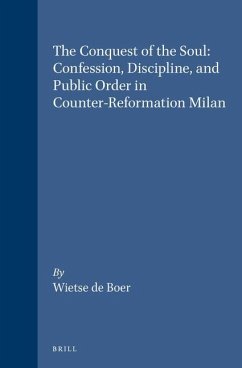Carlo and Federico Borromeo achieved fame by turning Milan into the foremost laboratory of the Italian Counter-Reformation. This monograph, the first on the subject to appear in English, interprets their program of penitential discipline as a quest to reshape Lombard society by reaching into the souls of its inhabitants. This integration of the public and private spheres had vast implications - the transformation of the clergy into a professional body, a bureaucratic-juridical turn in sacramental practice, interventions in the ritual order (notably the introduction of the confessional), and new models of disciplined and 'civilized' behavior. Catholic confessionalism thus conceived had decidedly mixed outcomes. While it transformed the religious landscape forever, its deepest ambitions foundered amidst political opposition, popular resistance, and bureaucratic accommodation. Milan was never to be a city on a hill.








